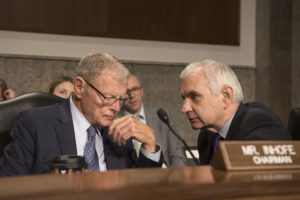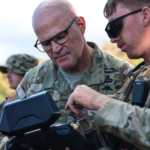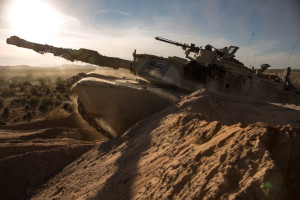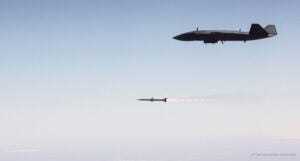
The Senate Armed Services Committee thinks its version of the annual policy-shaping National Defense Authorization Act could pass the upper chamber before the Fourth of July holiday, a Committee aide confirmed Monday afternoon. Politico reported Monday that the GOP-controlled Committee planned to mark up its version of the bill the week of June 8. Unlike the House, which marks up its version of the annual National Defense Authorization Act (NDAA) in a marathon open markup, the Senate typically speeds through…

 By
By 











